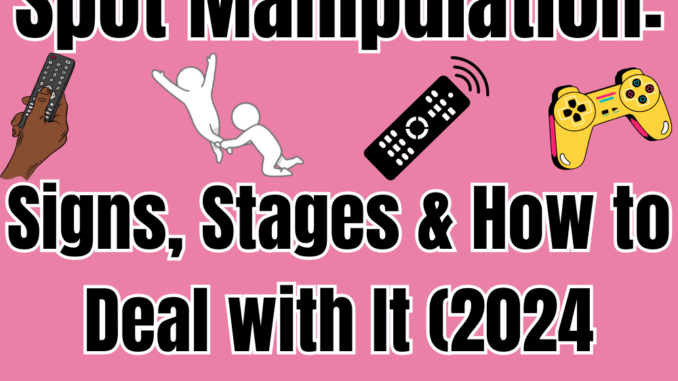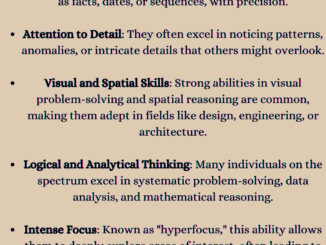
Understanding Manipulation: How to Spot It and Avoid It
Manipulation is a sneaky tactic used to influence someone’s thoughts, feelings, or actions to benefit the manipulator. It can be subtle or blatant, happening in all kinds of relationships, from romantic partnerships to friendships and even professional settings.
Understanding manipulation empowers you to protect yourself and build healthier relationships.
Manipulation has two main meanings:
1. Skillful handling or control: This definition refers to using your skills or knowledge to manage or influence something or someone effectively. For example, a sculptor might manipulate clay to create a beautiful piece of art, or a doctor might manipulate a broken bone back into place.
2. Controlling someone to your advantage: This is the more negative connotation of manipulation. It refers to using indirect or dishonest tactics to influence someone’s thoughts, feelings, or actions in order to get what you want. This can involve emotional manipulation, guilt-tripping, gaslighting, or other sneaky methods.
Here’s a quick way to remember the difference:
- Positive Manipulation: Skilled control that uses knowledge or ability for a good outcome.
- Negative Manipulation: Deceptive control that uses tactics to get an advantage over someone
This article explores the different aspects of manipulation, including signs to watch out for and how to identify it in yourself and others.
Signs of Manipulation
Manipulation can be difficult to detect, but there are some key signs to be aware of:
- Emotional manipulation: This involves using emotions like guilt, fear, or obligation to control someone’s behavior. Examples include guilt-tripping, playing the victim, or making someone feel sorry for them.
- Isolating you: A manipulator might try to cut you off from your friends and family, making you more dependent on them.
- Gaslighting: This involves denying or minimizing someone’s experiences to make them question their own reality.
- Excessive flattery and charm: While compliments are nice, a manipulator might shower you with excessive praise to gain your trust and make you more receptive to their requests.
- Lying and blame-shifting: Manipulators often avoid responsibility by lying or shifting blame onto others.
Read Also:
4 Stages of the Manipulation Process
The manipulation process can be broken down into several stages, though it’s important to remember it’s not always a linear path. A manipulator may revisit earlier stages or employ tactics from multiple stages at once. Here’s a general breakdown of the common stages:
1. Targeting
In this initial stage, the manipulator identifies a potential target. They size up the person, looking for vulnerabilities, desires, and weaknesses they can exploit. They might target someone who seems kind, trusting, or has low self-esteem.
2. Friendship Forming/Rapport Building
Once a target is identified, the manipulator cultivates a relationship with them. They may befriend the target, become a romantic partner, or build trust in a professional setting. During this stage, the manipulator presents a charming and caring facade. They may shower the target with compliments, gifts, or acts of service.
3. The Hook
The manipulator establishes a sense of obligation or dependence in the target. This could involve offering financial help, “rescuing” them from a difficult situation, or creating a shared secret.
4. Isolation
The manipulator may try to isolate the target from their friends, family, or support system. This makes the target more reliant on the manipulator and less likely to seek help from others who might spot the manipulation.
5. Exploitation
With the target isolated and dependent, the manipulator feels empowered to exploit them. This could involve anything from demanding money or favors to emotional abuse and control.
6. Guilt, Shame, and Confusion
The manipulator may use tactics like guilt trips, gaslighting, or silent treatment to keep the target off balance and questioning their own reality. This can make it difficult for the target to recognize the manipulation or seek help.
7. Maintaining Control
The manipulator will likely employ various tactics to maintain control over the target. This could involve threats, intimidation, or simply continuing the cycle of manipulation.
It’s important to remember that not all relationships that go through these stages are manipulative. However, being aware of these stages can help you identify potential red flags and protect yourself from unhealthy relationships.
Signs of Manipulative Behavior
Here’s a breakdown of manipulative behaviors you might encounter in various contexts:
General Manipulation:
- Emotional manipulation: Making you feel guilty, ashamed, or fearful to get their way. Examples: guilt trips, silent treatment, gaslighting.
- Deception: Lying, withholding information, or twisting the truth to suit their agenda.
- Exploitation: Taking advantage of your kindness, resources, or vulnerabilities.
- Isolation: Trying to cut you off from friends and family to control you.
- Playing the victim: Making themselves seem like the victim in a situation to gain sympathy or avoid responsibility.
Romantic Relationships:
- Possessiveness and jealousy: Controlling who you see or where you go.
- Excessive monitoring: Checking your phone, social media, or constantly needing to know your whereabouts.
- Love bombing: Showering you with affection at the beginning to create an intense bond and dependence.
- Putting you down: Belittling your accomplishments or criticizing your appearance.
- Threats of self-harm or suicide: Using emotional blackmail to control your behavior.
Friendships:
- Fair-weather friends: Only being around when they need something from you.
- One-sided friendships: Taking more than they give in the relationship.
- Gossip mongering: Spreading rumors or negativity about others.
- Triangulation: pitting you against other friends to create drama and maintain control.
- Competition: Constantly trying to outdo you or make you feel inferior.
Workplace Manipulation:
- Taking credit for your work: Stealing your ideas or presenting your work as their own.
- Blameshifting: Shifting responsibility for mistakes onto you.
- Public humiliation: Criticizing you in front of colleagues to undermine your confidence.
- Withholding opportunities: Blocking your career advancement or development.
- Creating a hostile work environment: Making you feel uncomfortable or unsafe at work.
By recognizing these signs in different contexts, you can better identify manipulation and protect yourself from unhealthy relationships.
Signs You’re Manipulative Without Realizing It
Sometimes, manipulative behavior can be unintentional. Here are some signs you might be manipulating others without realizing it:
- Always needing to be right: You struggle to admit you’re wrong and might resort to guilt-tripping or arguing to get your way.
- Difficulty compromising: You have a hard time meeting others halfway and insist on things being done your way.
- Making veiled threats: You make subtle threats or warnings to get what you want.
- Playing on people’s emotions: You use emotions strategically to get someone to do something for you.
- Taking advantage of people’s kindness: You rely heavily on others’ generosity without reciprocating.
If you recognize these behaviors in yourself, it’s important to become more self-aware and develop healthier communication skills.
Signs Someone Is Manipulating You
If you’re constantly feeling on edge, anxious, or guilty around someone, it might be a sign they’re manipulating you. Here are some additional signs:
-
They make you feel bad about yourself. Manipulators might use guilt, insults, or put-downs to erode your self-esteem. They may constantly criticize your decisions or make you feel like you’re not good enough.
-
They play the victim. Manipulators are experts at turning situations around to make themselves seem like the victim. They might guilt-trip you or make you feel sorry for them to get what they want.
-
They lie or withhold information. A manipulator may not be truthful with you, or they might leave out important details to control the situation.
-
They pressure you into decisions. They might try to rush you into making a decision before you’ve had time to think it through, or they might use threats or ultimatums to get their way.
-
They don’t take responsibility for their actions. Manipulators are always quick to blame others for their mistakes.
-
Your gut feeling tells you something is wrong. If you have a nagging feeling that you’re being manipulated, trust your instincts.
- You feel like you’re walking on eggshells: You’re constantly worried about saying or doing the wrong thing.
- You doubt your own judgment: The manipulator might make you question your perceptions and reality.
- You feel isolated: They might try to cut you off from your support system.
- You’re constantly apologizing: You feel responsible for their happiness and well-being, even when it’s not your fault.
- Your self-esteem is suffering: The manipulator might make you feel inadequate or insecure.
How to Deal with Manipulation
If you’re being manipulated, it’s important to take steps to protect yourself. Here are some tips:
- Set boundaries: Clearly communicate what you will and will not tolerate.
- Trust your gut: If something feels off, it probably is. Don’t ignore your intuition.
- Seek support: Talk to trusted friends, family, or a therapist about what you’re experiencing.
- Limit contact: If possible, distance yourself from the manipulator.
- Focus on self-care: Prioritize your well-being and emotional health.
FAQs: Understanding Manipulation
Here are answers to your frequently asked questions about manipulation:
1. What are signs of manipulation?
There are many signs of manipulation, but some common ones include:
- Emotional manipulation: Using guilt, fear, or obligation to control someone’s behavior (e.g., guilt-tripping, playing the victim).
- Isolating you: Trying to cut you off from friends and family.
- Gaslighting: Denying or minimizing your experiences to make you question your reality.
- Excessive flattery and charm: Showering you with praise to gain your trust and control.
- Lying and blame-shifting: Avoiding responsibility by lying or shifting blame to others.
2. Can someone manipulate you without knowing?
Yes, sometimes manipulation can be unintentional. People might use manipulative tactics without realizing it, especially if they grew up in an environment where manipulation was common.
3. What are signs of manipulation in a relationship?
In addition to the general signs above, manipulation in a relationship can involve:
- Controlling behavior: Dictating who you see, what you wear, or how you spend your money.
- Possessiveness and jealousy: Being overly controlling and suspicious of your interactions with others.
- Passive-aggressive behavior: Expressing anger or frustration indirectly.
- Withholding affection or intimacy: Using affection or intimacy as a bargaining chip.
4. Do manipulators know they are manipulating?
Not always. Some manipulators are very aware of their tactics and use them deliberately. Others might be manipulative due to their own insecurities or lack of healthy communication skills.
5. What happens when you outsmart a manipulator?
Outsmarting a manipulator can be tricky. They might become angry, deny their behavior, or try to manipulate you in new ways. It’s important to stay calm, assertive, and focused on your boundaries.
6. How does a manipulator act when confronted?
When confronted, a manipulator might use various tactics, such as:
- Denial and deflection: Denying they are manipulating and accusing you of being crazy or overreacting.
- Anger and intimidation: Trying to scare or guilt you into backing down.
- Playing the victim: Making themselves seem like the victim of the situation.
If you confront a manipulator, be prepared for their reaction and have a plan for how you will respond.
Remember, you deserve healthy, respectful relationships. By understanding manipulation and its signs, you can empower yourself to create positive connections and protect yourself from those who seek to control you.




3 Trackbacks / Pingbacks